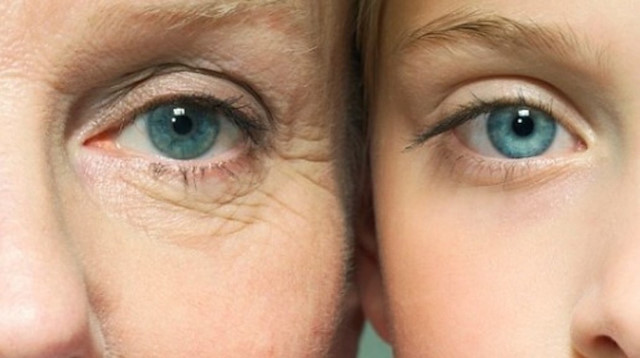Researchers created advice for advising non-obese 40 to 60-year-old women with body mass index (BMI) levels under 29.9 kg/m2 in a recent study that was published in Annals of Internal Medicine. The Women’s Preventive Services Initiative (WPSI) team included the researchers, whose goal was to improve the long-term health, happiness, and functionality of midlife women.
Background
Obesity (BMI 30 kg/m2) is a prevalent health issue among midlife women who are going through physiologic and behavioral changes brought on by aging and menopause. The risk of chronic illnesses such dyslipidemia, hypertension, diabetes mellitus type 2, stroke, coronary artery disease, and all-cause mortality is increased by obesity.
Additionally, there has been evidence between obesity to malignancies of the breast, ovary, and endometrial. Studies have established recommendations for obese patients based on the advantages and disadvantages of weight control techniques, but no such guidelines have been created for non-obese midlife women.
About the study
Based on a comprehensive assessment of the efficacy and balance of benefits and harms of treatments to prevent obesity among midlife women, the WPSI team researchers in the current study made recommendations to prevent obesity among middle-aged women.
Randomized controlled trials (RCTs, n=7) including 51,638 women with BMI ranges from normal to overweight were included in the systematic review. The studies included behavioral and counseling treatments to prevent obesity in women between the ages of 40 and 60, the prevalence of obesity in this age range, the documented negative effects of being overweight, and the minimum predicted negative effects of counseling.
The trials that were reviewed compared women who received behavioral weight-loss techniques to those who got little or no intervention. The analyses did not include the trials that had men or underweight, pregnant, or postpartum women. The WPSI team developed the recommendations based on a loose chain of evidence.
Results
Four of the seven RCTs’ participants discovered a statistically significant weight reduction of 0.9 to 2.5 kg when comparing moderate- to high-intensity counseling therapies to control interventions. Two exercise intervention trials and one counseling research, however, failed to find any changes. One research found increased quality-of-life (QoL) scores across two RCTs.
Only two research examined the detrimental effects of counseling or exercise therapies. One study found that behavioral therapy did not result in increased stress or depression indicators. In one study including previously sedentary women, self-reported percentages of falls (37 percent versus 29 percent) and injuries (19 percent against 14 percent) were higher with exercise coaching.
In four (out of five) behavioral counseling RCTs, there were positive and statistically significant weight improvements compared to controls (average weight differences between intervention groups and controls ranged from 0.9 kg to 2.5 kg), but not in the two exercise RCTs. There were few documented negative effects of counseling and behavioral therapies. In two RCTs, differences in QoL measures were not convincing. The quality of the evidence from the included RCTs was poor for the associated hazards and moderate for the effectiveness of weight control treatments.
For overweight patients with increased BMI values and physically inactive patients consuming unhealthy meals, the WPSI advised physical activity and nutrition evaluations, with counseling individualized to each individual for physical activity and good eating. The WPSI said that greater intensity treatments, including appropriate referrals, might be utilized to improve weight outcomes. Counseling can be provided during health check-ups.
Counseling must also take into account issues that may have an impact on health outcomes, such as trauma, socioeconomic position, and chronic stress. Counseling efforts must also take into account societal body image issues, weight stigma, individual body composition variability, free time, exercise space accessibility, childcare, access to nutritious food, and money.
RCTs investigating behavioral therapies for midlife women’s weight control were ineffective and showed very modest effects. The majority of RCTs only used short-term evaluations, making it impossible to determine the best strategy for preventing obesity. Even moderate weight reduction (three to five percent) and a number of therapies with different frequency, intensity, and duration, however, demonstrated important health advantages. The amounts of weight reduction that were reported were comparable to those in the studies that served as the basis for the USPSTF (United States preventive services task force) recommendations.
Conclusions
The WPSI advised that midlife women with normal or increased BMI must undergo counseling for obesity prevention. This recommendation was based on the findings of the systematic review and the rising obesity burden among women in their midlife. By extending counseling of non-obese adult populations without cardiovascular risk factors to include individualized decisions and referrals for normalizing a healthy diet, regular physical activity, and behavioral counseling for all eligible non-obese women in primary care settings, the recommendations are an expansion of the current USPSTF level C recommendations.
Midlife women who get behavioral counseling may avoid gaining weight and have a small, harmless weight decrease. Future research must clarify the best weight-management strategies, nevertheless. The suggestions could enhance clinical preventive health care coverage, direct clinical practice, and lessen worries about weight stigma.
- David Chelmow, MD, Kimberly D. Gregory, MD, MPH, et al. (2022). Preventing Obesity in Midlife Women: A Recommendation From the Women’s Preventive Services Initiative. Annals of Internal Medicine. doi: https://doi.org/10.7326/M22-0252 https://www.acpjournals.org/doi/10.7326/M22-0252





